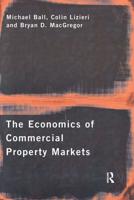Publisher's Synopsis
Game theory explores situations in which agents interact strategically and provides a useful foundation for studying many traditional industrial organization topics. This approach has also enabled the emergence of new areas of enquiry including law and economics, networks, the digital economy, auctions, experimental game theory and many others.
This second volume of the Handbook includes original contributions by experts in the field. It provides up-to-date surveys of the most relevant applications of game theory to industrial organization. The book covers both classical and industrial organization topics such as mergers in markets with homogeneous and differentiated goods, leniency and coordinated effects in cartels and mergers, static and dynamic contests, consumer search and product safety, strategic delegation, platforms and network effects, auctions, environmental and resource economics, intellectual property, healthcare, corruption, experimental industrial organization, and empirical models of research and development.
Authoritative and engaging, this unique Handbook will be an indispensable resource for all serious academics, researchers and students of industrial economics and game theory.
Contributors incude: S. Anderson, A. Barge-Gil, P. Belleflamme, J. Brandts, R. Burguet, L. Corchón, A. Daughety, N. Fabra, R. Fauli-Oller, J.-J. Ganuza, M.l. Gonzalez Maestre, A. Hernando-Veciana, M. Hoffmann, E. Huergo, M. Kopel, L. Lambertini, A. Lopez, M. Marini, C. Marvao, E. Maskin, J.G. Montalvo, L. Moreno, M. Motta, P. Olivella, M. Peitz, M. Pezzino, M. Polo, J. Potters, J. Reinganum, R. Renault, G. Rota Preziosi, J. Sandonis, M. Serena, G. Spagnolo










